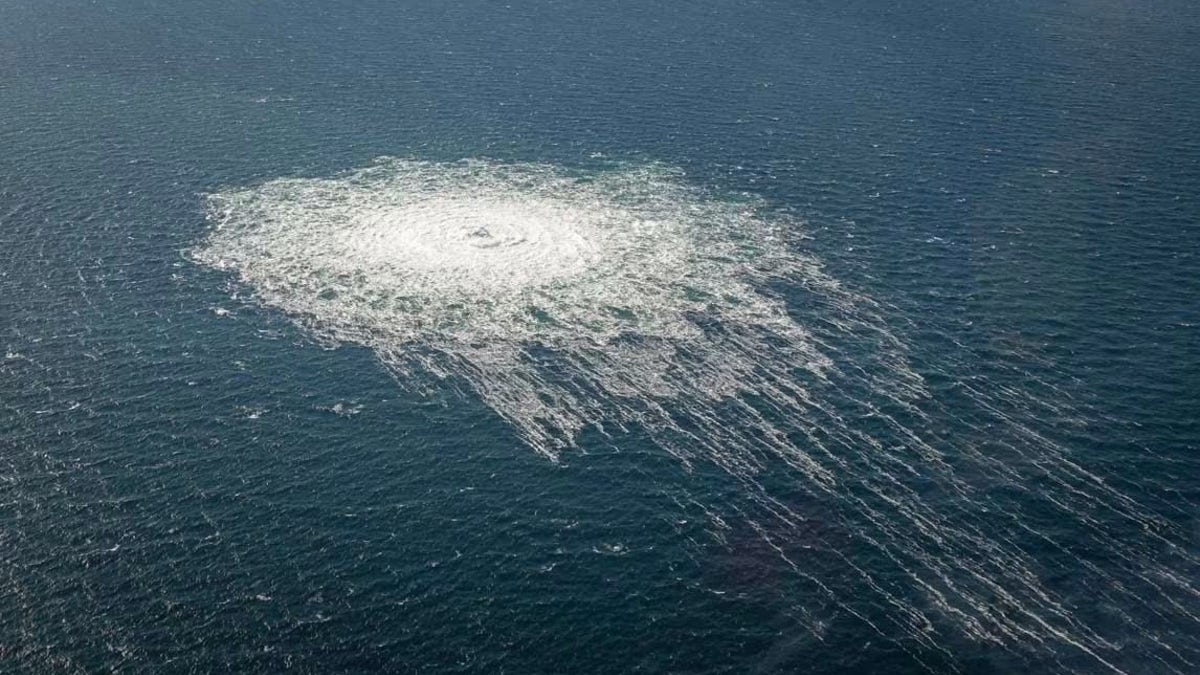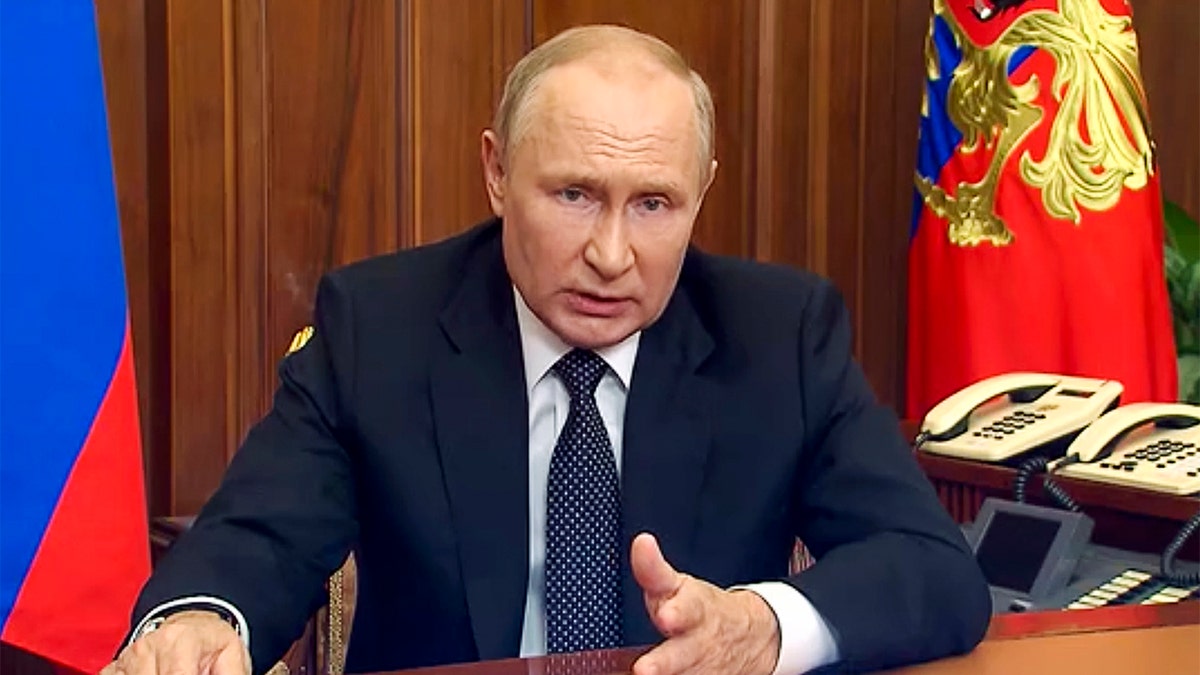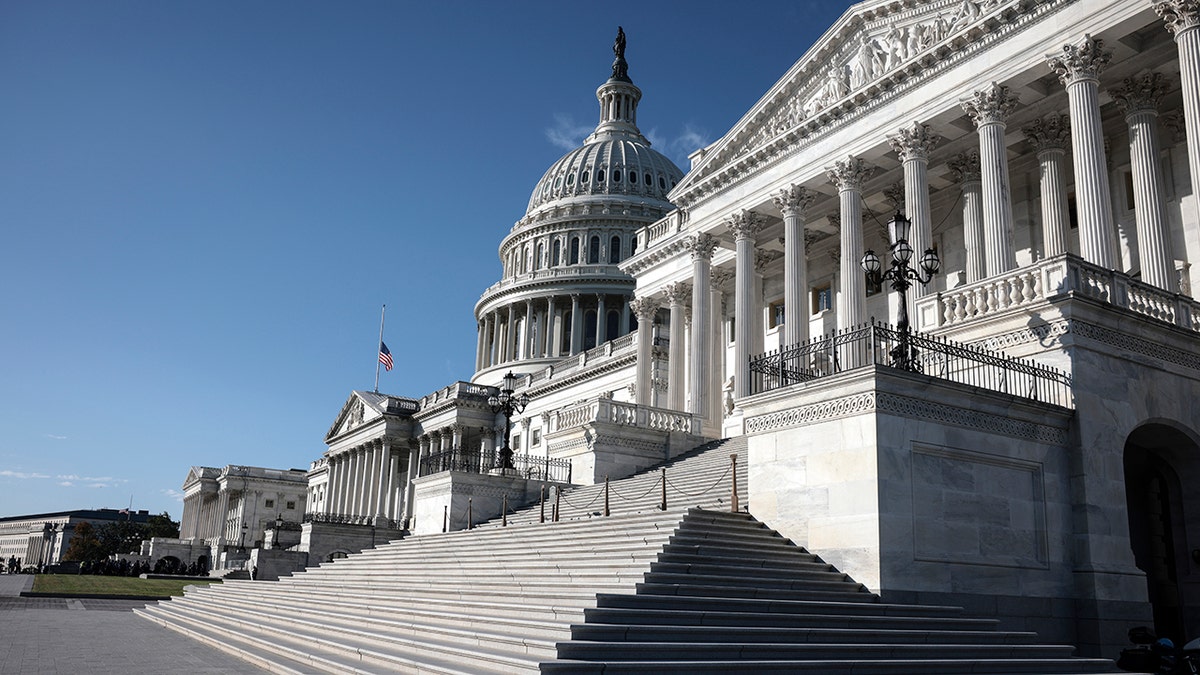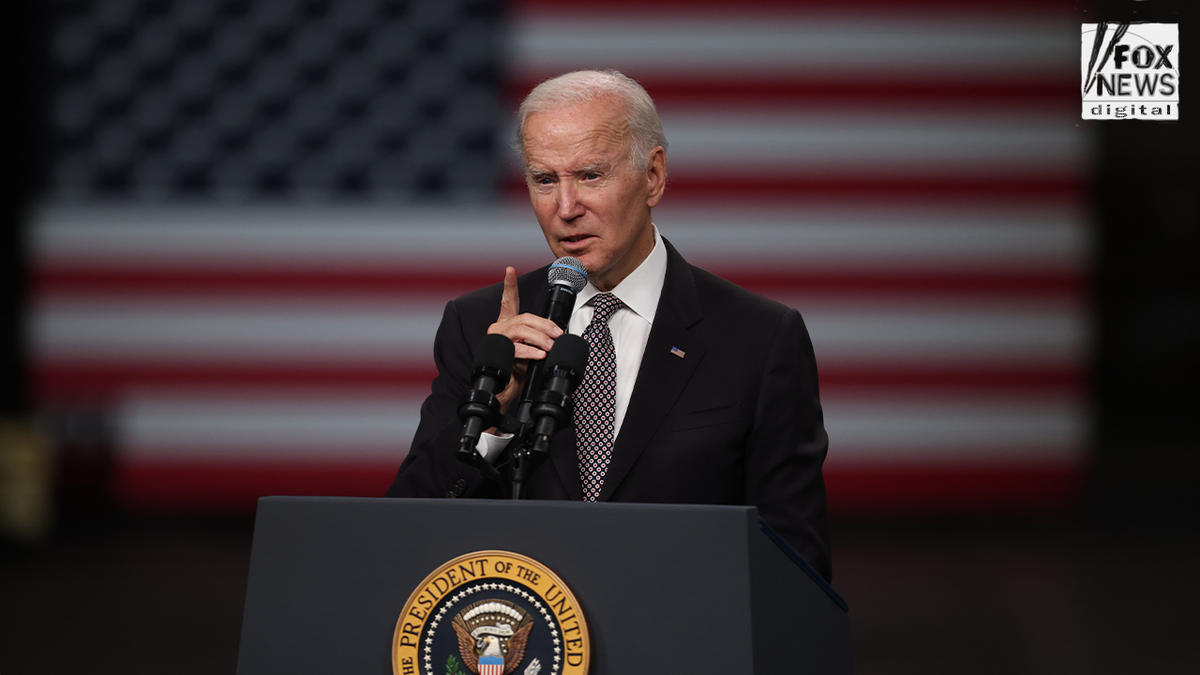'Fox News Sunday' panel discusses potential Biden-DeSantis 2024 match-up, Ukraine aid, 'saber rattling' Putin
'Fox News Sunday' host Shannon Bream discusses with panelists Olivia Beavers, Doug Heye, Mo Elleithee, and Chad Pergram a potential Biden-DeSantis 2024 match-up, aid to Ukraine, Nord Stream 2 pipeline, and Russia's effect on midterms.
We have not necessarily been here before.
But we’ve been close enough.
To wit: Washington and Moscow trading barbs in October of a midterm election year about nuclear weapons.
"We have not faced the prospect of Armageddon since Kennedy and the Cuban Missile Crisis," said President Biden. "[Russian leader Vladimir Putin] is not joking when he talks about potential use of tactical nuclear weapons or biological and chemical weapons because his military is, you might say, significantly underperforming."
POMPEO RIPS BIDEN'S 'RECKLESS' ARMAGEDDON REMARK: 'ONE OF THE GREATEST FOREIGN POLICY FAILURES'
Biden added that he doubted "there’s any such thing as the ability to easily use tactical nuclear weapons and not end up with Armageddon."
With his military stumbling, Putin has intensified attacks in Ukraine of late. Ukrainian forces took out a major bridge linking Ukraine and Crimea — which Russia annexed in 2014. Now Russian forces are launching more aggressive attacks on Ukrainian civilians and in Kyiv.

Danish Defense shows the gas leaking at Nord Stream 2 seen from the Danish F-16 interceptor on Bornholm, Denmark on September 27, 2022. (Photo by Danish Defence/Anadolu Agency via Getty Images) (Getty Images/Danish Defense)
Those incursions aren’t just directed at Ukraine but at other nations as well. There is the apparent sabotage of the Nord Stream II pipeline shipping natural gas to Western Europe. There’s talk that Russia could next unleash a major cyberattack against the west.
"I think it’s Putin’s way of sending a message to the Europeans that I can affect you. You may have the upper hand on me, But I can also affect you," said Senate Foreign Relations Committee Chairman Bob Menendez, D-N.J.
Putin is well aware that a midterm election is approaching in the U.S. It’s the first federal election since last year’s riot at the Capitol. Concerns linger about the integrity of the election and whether some candidates and voters — especially Republicans — will respect the results.
CONGRESS CAN’T KEEP FUNDING UKRAINE FOREVER WITHOUT BIDEN TELLING US HIS STRATEGY TO END THE WAR
This creates a perfect period for geopolitical mischief by Putin, augmented by the fact that his military is getting smoked in Ukraine and morale is waning. Those who study Putin wonder if he could plot a guerilla tactic to creep into the minds of American voters as they head to the polls in November. Such a gambit could work. Even if it’s just a psychological one.
Putin told Russians that Moscow would "make use of all weapon systems available to us." That included nuclear weapons.
"The citizens of Russian can rest assured that the territorial integrity of our motherland and our independence and freedom will be defended," said Putin. "Those who are using nuclear blackmail against us should know that the wind can turn around."

In this image made from video released by the Russian Presidential Press Service, Russian President Vladimir Putin addresses the nation in Moscow, Russia, Wednesday, Sept. 21, 2022. (Russian Presidential Press Service via AP)
This brings us to the Cuban Missile Crisis in October, 60 falls ago. President John F. Kennedy and the United States stood toe-to-toe with General Secretary Nikita Khrushchev and the Soviet Union — just before the 1962 midterm elections.
The U.S. failed to covertly overthrow the regime of Cuban leader Fidel Castro during the botched Bay of Pigs invasion in 1961. That nudged Havana closer to the U.S.S.R. Khrushchev decided to test the resolve of the young American leader by planning to install nuclear warheads in Cuba, just 90 miles from U.S. shores. Cuba asked for the missiles to deter a potential U.S. incursion following the Bay of Pigs invasion.
Khrushchev also wanted to respond to a decision by Washington to put Jupiter ballistic missiles in Turkey and Italy.
It’s well-documented that the two superpowers edged close to nuclear blows in 1962. Even so, the Cuban Missile Crisis may have bolstered Kennedy and Democrats in the midterms. The party of the president routinely loses 25-30 seats in the first midterm. Democrats only lost five House seats in that midterm.
Democrats fared much better in the Senate. Democrats already had the majority in the Senate, but enhanced their advantage by gaining a net of four seats. The 1962 midterms marked the first time since 1932 that Democrats picked up seats with that class of senators on the ballot.
The Kennedy Administration believed the Soviet intentions posed an existential threat to the United States. But not everyone on Capitol Hill was convinced that the U.S. was staring at nuclear holocaust. Some suspected it was a political ploy.

WASHINGTON, DC - The U.S. Capitol Building is seen on October 22, 2021 in Washington, DC. (Anna Moneymaker/Getty Images)
"I told you that the President would move on Cuba before the election," said late Sen. Norris Cotton, R-N.H., facing re-election in 1962 after Kennedy imposed a blockade around the island nation.
Late Rep. Thomas Curtis, R-Mo., characterized the Cuban Missile Crisis as "phony and contrived for election purposes."
Late Sen. Barry Goldwater, R-Ariz., believed the foreign policy crisis was a scheme to stir up support for the November ballot.
With just a month before the midterms, Congressional Republicans are already converting Biden’s remarks about Cuba into an election issue.
"We’re projecting weakness around the world," said Rep. Claudia Tenney, R-N.Y., on Fox. "He’s just spitting out talking points and then the staff cleans it up."
Tenney also declared that if the Russian threat was so grave, then Biden shouldn’t have made the case at a fundraiser.
"He’s not in the Situation Room," said Tenney.

President Biden visits IBM to announce $20B investment in Hudson Valley Oct 06, 2022, 7:17amUpdated 55m ago By: News 12 Staff 0:09 / 2:35 President Joe Biden visited the Hudson Valley on Thursday. (The Image Direct for Fox News Digital)
"There’s two bad options here," observed Rep. Bryan Steil, R-Wisc., on Fox. "One, he misspoke. And if he’s misspeaking like this recklessly about nuclear war, that is a huge problem. Two, that is actually what the assessment is — what the heck is he doing at a fundraiser this week in Delaware? If that’s the case, you should be in the Situation Room having conversations with our military leaders, working to de-escalate the situation."
There is one argument that Biden’s mention of the nuclear issue could very well be an effort to get the information into the public domain as a way to give Putin an off-ramp. Foreign policy experts have said for weeks now that the last thing they want is Putin to be backed into a corner and then actually turn to nuclear weapons. As disgusted as the west is with Putin at this stage, they want him to have options.
"I wouldn’t necessarily have chosen the words the way he did at that particular event," said House Armed Services Committee Chairman Adam Smith, D-Wash., when queried about the president’s "armageddon" comment by colleague Bret Baier. "We understand how serious this is. All of our colleagues don’t necessarily hear all of the same things that we here. But we’re trying to educate them so they’ll be with us on board."
The Cuban Missile Crisis is viewed as one of the most defining moments in American history. The two superpowers later established a "hotline" between Moscow and Washington to allow direct communication between the leaders to potentially forestall a catastrophic military or political miscalculation.
CLICK HERE TO GET THE FOX NEWS APP
Foreign policy is not exactly top of mind for most voters ahead of this fall’s midterms. Most voters are tracking inflation, crime, abortion, the border and the future of democracy.
But if things devolve inside the Kremlin, one can only begin to imagine how the future — and not just the future of democracy — could be top of mind.
Much the same way the missiles of October did so 60 autumns ago.












































